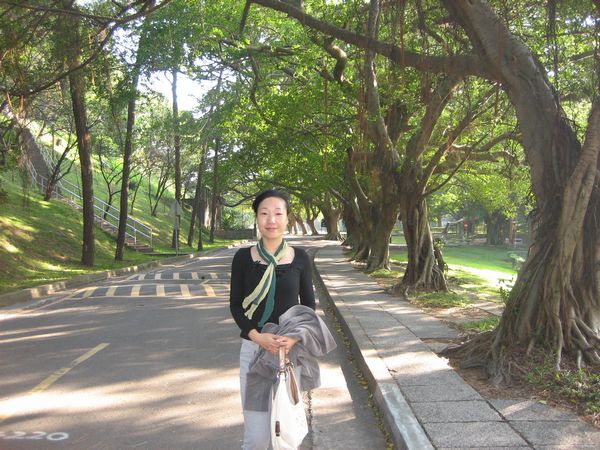科学哲学教研室




基本情况:华东师范大学哲学系教授
研究方向:科学实践哲学、公众理解科学,特别是交叉科学、化学、医学以及公众理解科学中的认识论问题。
学术经历:2008年获北京大学博士学位,随后进入华东师范大学哲学系,从事科学技术哲学、科学技术史专业的研究与教学工作;2007年在清华大学(台湾新竹)进行访问研究,2015-2016年在美国宾夕法尼亚大学哲学系进行访问研究。
学术兼职:中国自然辩证法研究会化学化工专业委员会副理事长、秘书长;中国科学技术史学会理事;上海市自然辩证法研究会副理事长,医学哲学专业委员会副主任
学术成果:
一、项目研究与学术荣誉
主持了国家社科基金项目,科技部、教育部、中国科学技术协会、上海市教委、上海市科委、中国科学院、韩国基金会等设立的多项课题研究。
上海市晨光学者,上海市浦江人才,“科史哲”青年著作奖,上海市申万宏源奖教金奖
二、代表性成果
2. Mingjun Zhang,Deena Weisberg, Jing Zhu*, Michael Weisberg (2022). A comparative studyof the acceptance and understanding of evolution between China and the US. PublicUnderstanding of Science, 31(1):88-102.
3. Jing Zhu,Michael Weisberg, Mingjun Zhang (2020). Why does the Chinese public acceptevolution? Studies in History and Philosophy of Science, 81: 116-124.
4. Jing Zhu(2020). The ‘neglected’ chemistry: Fuels and materials preparation in China’s‘two bombs and one satellite’ project. Cultures of Science, 3(3): 1-14.
5. Jing Zhu(2018). “Elixir, Urine and Hormone: A Socio-cultural History of Qiushi (AutumnMineral),” East Asian Science,Technology, and Medicine, 47, 19-54.
6. Jing Zhu, Dingcheng Ren (2016). “Arsenic Preparedby Chinese Alchemist-pharmacists,” ScienceChina Life Sciences, 59 (10): 1086-1089.
7. Mingwu Ding, Shangjun Yang, Jing Zhu (2004). “NewEfficient Synthesis of 2-substituted5,6,7,8-tetrahydro-benzothieno[2,3-d]pyrimidin -4(3H)-ones,” Synthesis-Stuttgart, (1): 75-79.
8. Mingwu Ding,Jing Zhu, Sufang Shi, Xiaopeng Liu (2002). “New Facile Synthesis of2-Aryloxy-5-(2-furfurylidene)-4H-Imidazolin-4-ones,”Chinese Chemical Letters, 13(10):942-944.
9. 朱晶. 科学实践与合作网络中的可重复性问题. 自然辩证法研究,2022年第11期。
10. 朱晶,姜雪峰. 科学家为什么要参与科学传播——基于认识论信任的考察.人民论坛学术前沿,2022年第14期。
11. 朱晶. 科学合作中的网络认识论:科学家的社会交互如何影响认知交互. 社会科学,2021年第5期。
12. 朱晶. 认知劳动分工视角下的科学合作与集体知识. 哲学动态,2020年第3期。
13. 朱晶. 科学教育中的知识、方法与信念. 华东师范大学学报(教育科学版),2020年第7期。(人大复印报刊资料《教育学》2020年第11期全文转载,英文版收录于ECNUREVIEW)
14. 朱晶. 知识社会学视角下作为实践的中医. 科学技术哲学研究,2018年第6期。
15. 朱晶. 复杂性哲学视角下的人工智能医学. 哲学分析, 2018,9(5): 27-37.
16. 戴立信, 丁奎岭, 朱晶. 从合成结晶牛胰岛素到合成我们的未来. 生命科学, 2015,27(6): 676-680.
17. 朱晶. 诺贝尔化学奖得主群体创新方法探析. 科学学研究,2014, 32(10): 1461-1467.
18. 朱晶. 秋石名称考. 清华大学学报(哲学社会科学版), 2012, 27(3): 145-154.
19. 朱晶, 任定成. 欧洲人制备单质砷的早期历史的再考察. 自然科学史研究,2008,27(2): 151-165.
代表性专著:
朱晶. 中国经典医学的身体观与认知特征. 上海三联书店,2020年12月。(获全国第六届“科史哲青年著作奖”)
办公室:华东师范大学闵行校区人文楼2212
Jing ZHU
Affiliation: Department of Philosophy, EastChina Normal University, Shanghai, China
Position: Professor
ResearchField: History ofChemistry and Medicine, Philosophy of Science, Cognitive History, PublicUnderstanding of Science
Education
2008 Ph. D. History ofScience, Peking University
2007 Overseas Exchange Students, History of Science, TshinghuaUniversity (in Taiwan)
2003 B. S. Chemistry, Central China Normal University
Academic Appointments
2021~ present,Professor, Department of Philosophy, East China Normal University
2015~ 2016, Visiting Scholar, University of Pennsylvania
2012 ~ 2021,Associate Professor, Department of Philosophy, East China Normal University
2008 ~ 2012, Assistant Professor, Department of Philosophy,East China Normal University
Teaching
Introduction to History of Science
Topics in Sociology of Science
Scientific Thoughts and Methods
SelectedPublications
Journal articles published in English
1.Jing Zhu,Ming Chen, He Liang, Quanmin Li, Xuefeng Jiang (2022). Research strategies inclick chemistry: Measuring its cognitive contents and knowledge flow. ChineseChemical Letters, https://doi.org/10.1016/j.cclet.2022.107936.
2. Mingjun Zhang,Deena Weisberg, Jing Zhu*, Michael Weisberg (2022). A comparative studyof the acceptance and understanding of evolution between China and the US. PublicUnderstanding of Science, 31(1):88-102.
3. Jing Zhu,Michael Weisberg, Mingjun Zhang (2020). Why does the Chinese public acceptevolution? Studies in History and Philosophy of Science, 81: 116-124.
4. Jing Zhu(2020). The ‘neglected’ chemistry: Fuels and materials preparation in China’s‘two bombs and one satellite’ project. Cultures of Science, 3(3): 1-14.
5. Jing Zhu(2018). “Elixir, Urine and Hormone: A Socio-cultural History of Qiushi (AutumnMineral),” East Asian Science,Technology, and Medicine, 47, 19-54.
6. Jing Zhu, Dingcheng Ren (2016). “Arsenic Preparedby Chinese Alchemist-pharmacists,” ScienceChina Life Sciences, 59 (10): 1086-1089.
7. Mingwu Ding, Shangjun Yang, Jing Zhu (2004). “NewEfficient Synthesis of 2-substituted5,6,7,8-tetrahydro-benzothieno[2,3-d]pyrimidin -4(3H)-ones,” Synthesis-Stuttgart, (1): 75-79.
8. Mingwu Ding, Jing Zhu, Sufang Shi, Xiaopeng Liu(2002). “New Facile Synthesis of 2-Aryloxy-5-(2-furfurylidene)-4H-Imidazolin-4-ones,” Chinese Chemical Letters, 13(10): 942-944.
Journalarticles published in Chinese
1. Jing Zhu (2018). “Chinese Medicine inPractice: An Approach to Sociology of Knowledge,” Studiesin Philosophy of Science and Technology, 35(6): 116-122.
2. Jing Zhu (2018). “ArtificialIntelligence Medicine and Philosophy of Complex Systems,” Philosophical Analysis, 9(5): 27-37.
3. Jing Zhu, Qing Ye (2016). “TheScientific Dimension on the Theory of Resonance Controversies,” Studies in Dialectics of Nature, 32(6):70-75.
4. Lixin Dai, Kuiling Ding, Jing Zhu(2015). “From Synthesizing Crystalline Bovine Insulin to Synthesizing Our Future,” Chinese Bulletin of Life Sciences,27(6): 676-680.
5. Jing Zhu (2014). “Qiushi, a Non-aphrodisiac:Medical, Social and Cultural History of the Function and Practice of Qiushi,” Journal of Dialectics of Nature 36. 6:38-43.
6.Jing Zhu (2014). “A Study on Innovation Methodsof all the Nobel Prize Laureates in Chemistry,” Studies in Science of Science, 32(10): 1461-1467.
7. Jing Zhu (2013). “The ApproachChange for Chinese alchemy Studies: from Protochemistry to the Context in theSociety, Culture and Cognition,” Studiesin Philosophy of Science and Technology, 30(4): 71-76.
8. Jing Zhu (2009). “Cognitive Styles and Theories in Chinesealchemy,” Journal of Shanxi University,32(5): 134-138.
9.Jing Zhu, Dingcheng Ren(2008). “Historical Review and Experimental Reexamination of the Preparation ofElemental Arsenic by Europeans,” Historyof Natural Science, 27(2): 151-165.
10.Jing Zhu (2008). “A History of the Introduction and Improvement of Gunpowderand Firearms in Ancient Korea,” DongjiangJournal, 23(1): 35-42.
Fellowshipsand Awards
Korea Foundation Fellowship, 2005,awarded by Korean Foundation for foreign scholars and professional researchers
Fellowof the Stanford Program in Beijing, 2006, awarded by Stanford University
Dharma Drum Humanities and SocialImprovement Foundation Fellowship, 2006, awarded for researchers
OverseasExchangeFellowship,2007, awarded by Mainland Affairs Council for researchers
ChengGuang Scholar, 2009, awarded by Shanghai Municipal Education Commission andShanghai Education Development Foundation
Excellent Doctoral DissertationPrize, 2010, awarded by Peking University
Research Project on InnovationMethod, 2009, supported by Ministry of Science and Technology of China
Research Project on Qiushi, 2012, supported by the NationalSocial Science Fund
Research Project on Institutional Historyof Chemistry, 2014, supported by China Association for Science and Technology
State Scholarship Fund, 2015, organized by the ChinaScholarship Council
Shanghai Pujiang Program, 2018, awardedby Shanghai Municipal Science and Technology Commission and Shanghai MunicipalHuman Resources and Social Bureau
Research Project on ScientificCollaboration, 2019, supported by the National Social Science Fund
Best Book Awards in the History and Philosophy ofScience for Young Scholars